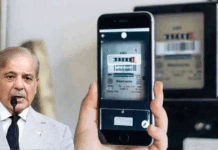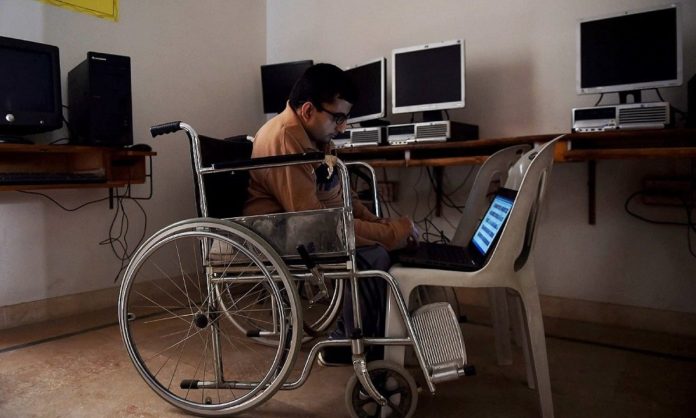Two students from the University of Engineering and Technology (UET) Mardan have developed a prototype of an electroencephalogram (EEG)-based wheelchair that can be controlled through brain signals. This groundbreaking invention aims to significantly improve the quality of life for quadriplegic patients.
Minds Behind the Project
Mohammad Dawood and Mohammad Faizan Akhtar, under the supervision of Dr. Jawad Ali, have designed and built this advanced wheelchair prototype. The device utilizes an EEG headset to interpret brain signals, enabling the user to control the wheelchair’s movements—forward, backward, left, and right—simply by thinking about them.
The wheelchair system comprises an EEG headset and a battery-powered wheelchair capable of carrying loads up to 250 kilograms. The headset detects the brain’s electrical activity when the user thinks about moving in a particular direction. These signals are then transmitted to an Arduino microcontroller, which processes the commands and activates the motors accordingly. The wheelchair also features a physical joystick and a Bluetooth gadget for additional control options.
Overcoming Mobility Challenges
Mohammad Dawood highlighted the everyday challenges faced by wheelchair users, especially the elderly and partially disabled, in operating conventional electric and mechanical wheelchairs. “Our goal is to design a system that receives signals from the brain and moves accordingly. By the system, we mean accumulator sensors. The sensor converts the raw form of a signal into an electrical signal. We can control the wheelchair through different brain waves such as alpha, beta, gamma, delta, and theta,” Dawood explained.
Mohammad Faizan Akhtar emphasized the potential impact of their innovation on the lives of patients. “This wheelchair will make life easier for patients by providing a more intuitive and effortless way to move around. It can be used by any person with an active brain,” Akhtar noted. The design aims to provide greater independence to individuals who rely on wheelchairs, reducing their dependency on others for mobility.
Institutional Support and Future Prospects
UET Mardan Vice-Chancellor Prof. Imran Khan praised the students’ efforts and the potential of their project. He remarked, “Such projects require very little effort to become commercial products.” Prof. Khan reiterated the university administration’s commitment to supporting student innovation by providing the necessary facilities and resources.

The EEG-based brain-controlled wheelchair developed by Mohammad Dawood and Mohammad Faizan Akhtar represents a significant advancement in assistive technology. By harnessing the power of brain signals, this innovation promises to transform the lives of quadriplegic patients, offering them newfound freedom and autonomy. As the project moves closer to commercialization, it stands as a testament to the determination of UET Mardan’s students and their dedication to improving human life through technology.
Stay tuned to Brandsynario for latest news and updates.





































